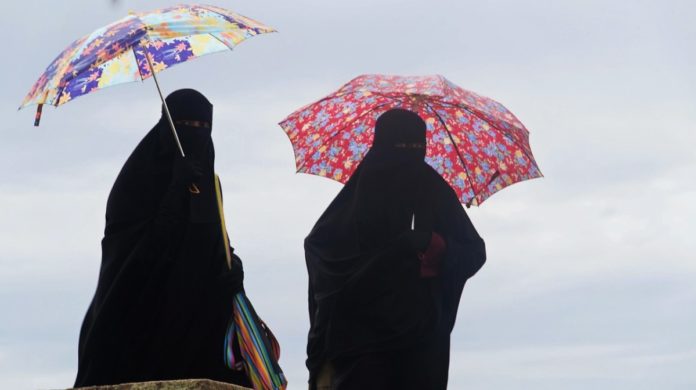From tomorrow, August 1, the Partial Ban On Face Covering Clothing Act comes into effect. Can you go into the Rijksmuseum wearing a burka? What about attending a doctors appointment? Walk down the street? What does this law actually involve?
The law prohibits any clothing which covers the face and makes someone unrecognisable. So although motorcycle helmets and ski masks are included in the legislation, the rights of people who wear burkas and niqabs are thought to be the most heavily infringed upon.
What constitutes a ‘public’ space?
A spokesperson for the Ministry of Internal Affairs told NOS “With a new law it is common that there are many questions.” The ban applies to any education, healthcare, public transport and government buildings. But importantly, this does not extend to the street.
So, does this mean someone wearing a burka cannot enter the Rijksmuseum because it is owned by the Government? But they could freely attend a private museum? That seems to be the case…
And in regard to public transport? Public transport conductors do not have authority to enforce the law. So although they can refuse entry to a person wearing a burka onto the transport carrier, they cannot hand out a fine.
The AD newspaper is suggesting people can perform a ‘citizen’s arrest’ while they wait for the police to arrive.
Verontrust na dit gelezen te hebben. Hoe gaan @Politie en @Het_OM voorkomen dat ondanks artikel 53 Sv het #boerkaverbod leidt tot geweld jegens vrouwen die een boerka dragen? pic.twitter.com/WeRUt35x2F
— Samira Rafaela (@samiraraf) July 31, 2019
This isn’t a good idea as the police points out:
Voor overtreding van deze wet kun je niemand aanhouden. Dus ook niet als burger. Het is zoiets als geen licht hebben op je fiets. Daar krijg je een boete voor.
— Politie Nederland (@Politie) July 23, 2019
Academic hospitals are against the fine and tell NOS they will not make efforts to enforce the law. It is a concern that people may avoid hospital treatment and care if if they are not allowed to wear a burqa or nikab.
Penalty
From August 1, any wearer of the restricted items will be asked to remove the offending piece, or leave the location. Police can be called to enforce the law and issue a €150 fine.
When the ban was first announced, Cemil Yilmaz, of the Islamic party NIDA, said the law amounts to bullying and declared NIDA would pay the fine for any woman punished for wearing a burka or niqab. Home Affairs say NIDA have no authority to do that.
Review
The law will be reviewed in three years which is shorter than the standard five-year review for new legislation.
The ban was initiated by Geert Wilders back in 2010 as he believed the burka prevented successful integration of women into the Netherlands. The Dutch government states there are only between 200 and 400 people who wear the burka or the niqab (a very slim minority out of a population of 17 million). The ban is not as rigid as other EU countries such as France, Belgium and Denmark.

The word burqa (burka) is not to be found anywhere in the Quran. God never commanded women to cover their faces. Read: http://www.quran-islam.org/articles/part_3/the_burqa_(P1357).html